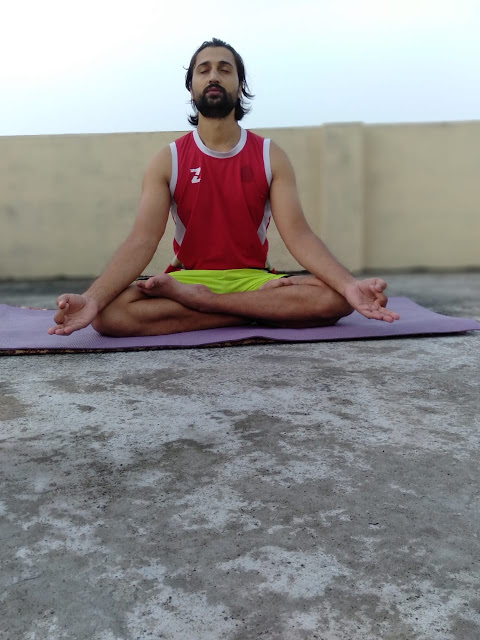How to make life better and be a better person? How to improve habits and thinking style?
Applying philosophical ideals in life will help guide and sharpen your thinking and put direction into it. Following are the most major philosophical points that may help you in this respect:
### 1. **Know Thyself**
- **"Know thyself"**: Knowing what you value, desire, and what motivates you is central to personal development and making decisions.
### 2. **Ethical Living**
- **Moral Integrity**: Live a life based on ethical principles: honesty, fairness, and compassion.
- **Golden Rule**: Treat others in the same way you would want to be treated.
### 3. **Mindfulness and Presence**
- **Living in the Present Moment**: If you can focus on the here and now, you will find much more in life because it does not stress you about the past or anxiety about the future.
- **Mindfulness**: Apply mindfulness to create in yourself an awareness and clarity about your deeds and thoughts.
### 4. **Critical Thinking**
- **Questioning Assumptions**: Be regularly critical and test your beliefs and assumptions to be open-minded and flexible.
- **Rational Thinking**: Problems and decisions should be approached with reason and logic.
### 5. **Resilience and Acceptance**
- **Stoic Philosophy**: Realize that you cannot control everything, only your reactions and attitudes to those events.
- **Acceptance**: Accept what you can't change; work on what you can influence.
### 6. **Purpose and Meaning**
- **Existentialism**: Find or create your meaning through your choices, actions, and relationships.
- **Meaning**: Identify and pursue what gives life meaning and purpose.
### 7. **Empathy and Compassion**
- **Altruism**: Act with concern and caring for the well-being of others.
- **Understanding**: Attempt to understand differing perspectives and life experiences.
### 8. **Balance and Moderation**
- **Aristotelian Mean**: Practice moderation, avoiding extremes of action and thought.
- **Work-Life Balance**: Develop a healthy balance between personal and professional life.
### 9. **Continual Learning
- **Socratic Method**: Question self and others relentlessly in order to have deeper understanding and knowledge.
- **Lifelong Learning**: Obtain an ongoing and continuous education and self-improvement.
### 10. **Thankfulness and Humility**
- **Thankfulness**: Count your blessings often.
- **Humility**: Modesty; knowing that you do have limitations; teachability.
### 11. **Liberty and Responsibility**
- **Liberty**: Protect individual freedom and that of others.
- **Responsibility**: Be responsible for one's actions and their consequences for people and the world.
### 12. **Community and Connection**
- **Interconnectedness**: We belong to the web of life, and our actions must consider the consequences on other living beings.
- **Community Engagement**: Engage with and contribute to your community.
### 13. **Wisdom and Prudence**
- **Prudence**: Decide with forethought and consideration of the consequences.
- **Wisdom**: Seek wisdom from experience, reflection, and the wisdom of others.
By applying these philosophical points, the individual will live a more considerate, meaningful, and satisfying life.
Here are twenty philosophical points that may help in the formation of guidelines for life:
1. **Know Thyself**: You must be aware of yourself as the foundation of personal growth and fulfillment.
2. **Live Authentically**: Pursue living under your deeper values and beliefs.
3. **Pursue Wisdom**: Seek knowledge and understanding at all times.
4. **Embrace Change**: That's just the way it is, and change is a powerful vehicle for growth.
5. **Practice Compassion**: Treat others with compassion and kindness.
6. **Balance**: Balance everything in life—work, relationships, self.
7. **Meaning**: Find a purpose to which you can give your life, and do it with passion.
8. **Gratitude**: Be content in the present moment and appreciate what you have today.
9. **Justice**: Be fair in all interactions and dealings.
10. **Uncertainty**: Learn to be at ease with unknowns and unpredictability.
11. **Live in the Present**: Focus on the present, rather than past or future.
12. **Cultivate Resilience**: Learn from adversity and setbacks.
13. **Treasure Relationships**: Cultivate meaningful relationships with others.
14. **Question Assumptions**: Be sceptical about your own and other's assumptions.
15. **Seek Happiness**: Realise that the path to happiness is best achieved as a by-product of living meaningful lives rather than as an end in itself.
16. **Mindfulness**: Be aware of your thoughts, emotions, and actions.
17. **Value Diversity**: Enjoy and learn from the many different people, cultures, and ways to walk through life.
18. **Accept Mortality**: Learn to accept that life is short and passes quickly.
19. **Health First**: Care for your physical, mental, and emotional body.
20. **Legacy**: Add value that will leave behind a positive legacy after this lifetime.
These points have their base in principles from many philosophical traditions and work toward living out a full and meaningful life.
At last, probably one of the most significant philosophical experiences involves coming to a realization that really does change one's perspective toward life. It can be from some deep personal reflection, after reading something inspiring, or just through some really thought-provoking conversation. Such experiences can break previously held beliefs and open up new dimensions for understanding that call for the reconsideration of values and the purpose in life. It's a lasting experience, for it not only enriches the intellectual and emotional landscape but also involves decision-making processes at higher degrees and interaction with the world, bringing about a closer relationship with it and increasing self-awareness.

Comments
Post a Comment